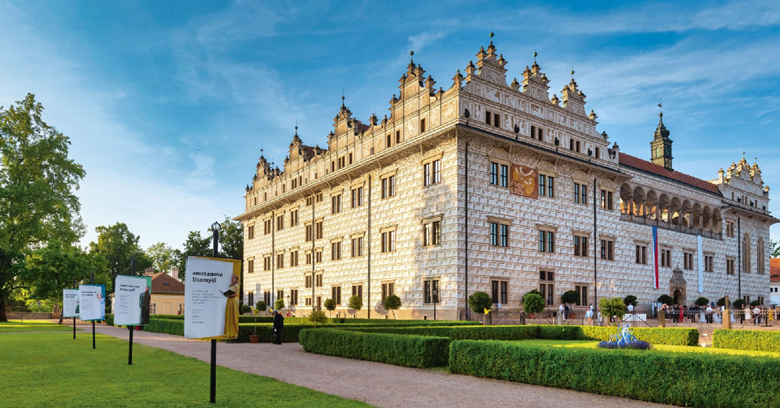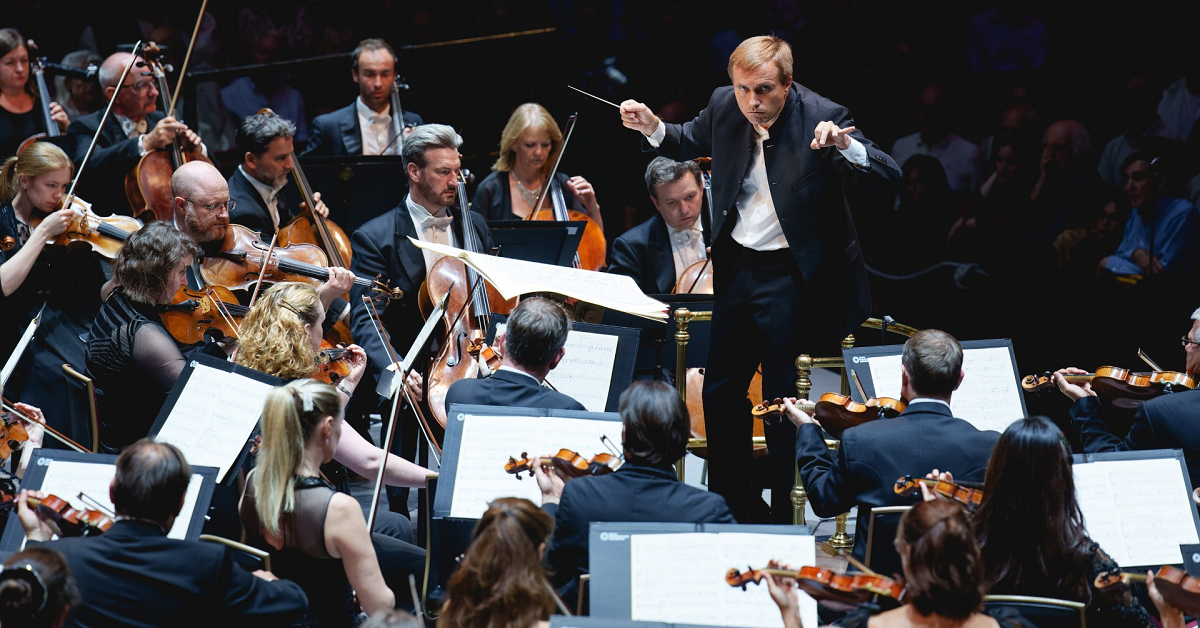A celebration of Smetana’s bicentenary
Claire Roberts
Monday, July 29, 2024
Claire Roberts takes a tour of one of the largest classical music festivals in the Czech Republic

Credit: Angazovany via Wikicommons
Years ending in the number four appear to have an uncanny significance when it comes to Czech composers, often coinciding with the anniversaries of composers’ births or deaths or the creation of a key work. The phenomenon has been even dubbed the ‘magic four in Czech music’. The so-called father of Czech music, Bedřich Smetana, was born in 1824, for example. And ever since the centenary of Smetana’s birth was commemorated in 1924, the Year of Czech Music has been celebrated in every year ending in four, with only a few exceptions. It’s a year-round celebration showcasing the music of Czech composers, with events and concerts both at home in the Czech Republic and abroad, from Carnegie Hall in New York to the Czech Embassy in Tokyo. This year’s series launched with a New Year’s Day performance from the Czech Philharmonic, conducted in concert at the Prague Rudolfinum by Jakub Hrůša.

 Bedrich Smetana. Credit: Museum of Bedrich Smetana
Bedrich Smetana. Credit: Museum of Bedrich Smetana
Smetana’s bicentenary is the main focus of 2024’s Year of Czech Music, although Dvořák, Janáček and Suk are also featured. And one of the largest classical music festivals in the Czech Republic is Smetanova Litomyšl – Smetana’s Litomyšl – festival, which was founded in 1946 and now features performances of chamber, orchestral and operatic works in Smetana’s home town. While tourists flock to Prague for its historic Old Town and array of concert halls, Litomyšl is a hidden gem. Located in the Pardubice region, mainly in the eastern part of historic Bohemia, it’s a small town of about 10,000 inhabitants and is known for its enchanting Litomyšl State Castle, a UNESCO-listed Renaissance palace. For a period of 25 days from the end of June to the beginning of July, festival events are held in the castle courtyard, the riding hall, festival hall and the Smetana Hall. A statue of Smetana himself overlooks the main square in the town, and it’s possible to visit the newly restored former castle brewery, where Smetana was born in 1824, to a family of master brewers.
“Years ending in the number four appear to have an uncanny significance when it comes to Czech composers”
It’s a popular festival. When tickets went on sale in March earlier this year, nearly two-thirds of the fifty concerts on offer in the town were sold out within the first two hours. ‘We are very happy about it, because this year’s festival is the largest in its history … we are especially pleased by the interest in Smetana’s operas, because their author deserves it,’ explains marketing and sales director, Karel Telecký. On the programme this year, sung in Czech, were both Smetana’s first opera, Brandenburgers in Bohemia, and his last, The Devil’s Wall, as well as the popular The Bartered Bride and his comic opera The Two Widows, in fully staged and chamber versions.

 Visitors to Smetana Litomysl. Credit: Claire Roberts
Visitors to Smetana Litomysl. Credit: Claire Roberts
And also featured was his 1881 opera Libuše, originally written for the coronation of Franz Josef as King of Bohemia, although it eventually ended up being premiered at Prague’s National Theatre. At the Litomyšl performance, the line-up included the Prague Philharmonic Choir, the Czech Philharmonic, and conductor Jakub Hrůša. Libuši was sung by lyric coloratura Kateřina Kněžíková, and the role of Přemysl by her husband Adam Plachetka.
Artistic director Vojtěch Stříteský says that the aim of the festival programme was to remember Czech people’s spiritual roots, ‘So that we have somewhere and something to return to, because our ground is strong, we just sometimes forget about it. I think it’s extremely important to feel anchored in these turbulent times’.
“Nearly two-thirds of the events at Smetanova Litomyšl were sold out within the first two hours”
This year, the festival has the subtitle ‘Má vlast’, as nod not only to Smetana’s symphonic poem, which has become an important symbol of Czech identity, but also to the festival’s homeland and to traditional Czech music. A concert titled ‘Homeland’ included a varied programme of folk-inspired pieces: Smetana’s Czech Song, the finale of Martinů’s Czech Rhapsody, part of A Bohemian Pilgrim by Sylvia Bodorová, ‘Lord, have mercy’ from Dvořák’s Sváta Ludmila, and Janáček’s The Eternal Gospel.
Audiences are welcomed in typical Czech character. This year youth orchestras accompanied the walk to the main hall each evening, and there were cabaret evenings, a beer-inspired concert (with a specially arranged version of Jan Kučera’s The Beer Oratorio performed by the Prague Symphony Orchestra), picnics on the sprawling lawns of the Litomyšl Monastery Gardens, art exhibitions at the Municipal and City Galleries, and an opening ceremony that had a surprising non-musical guest – the new Czech circus ensemble, Cirk La Putyka.

 Year of Czech Music 2024
Year of Czech Music 2024
Smetana’s Litomyšl wouldn’t be complete without a performance of Má vlast. It was heard this year at the final concert of the 2024 festival, performed by the Czech Philharmonic and principal guest conductor Tomáš Netopil. The orchestra play the music with abundant joy – it’s quite possibly a work they know off by heart – and audiences can frequently be heard humming along to the famous second movement ‘Vltava’, named after the river which flows past Prague’s fairytale spires.